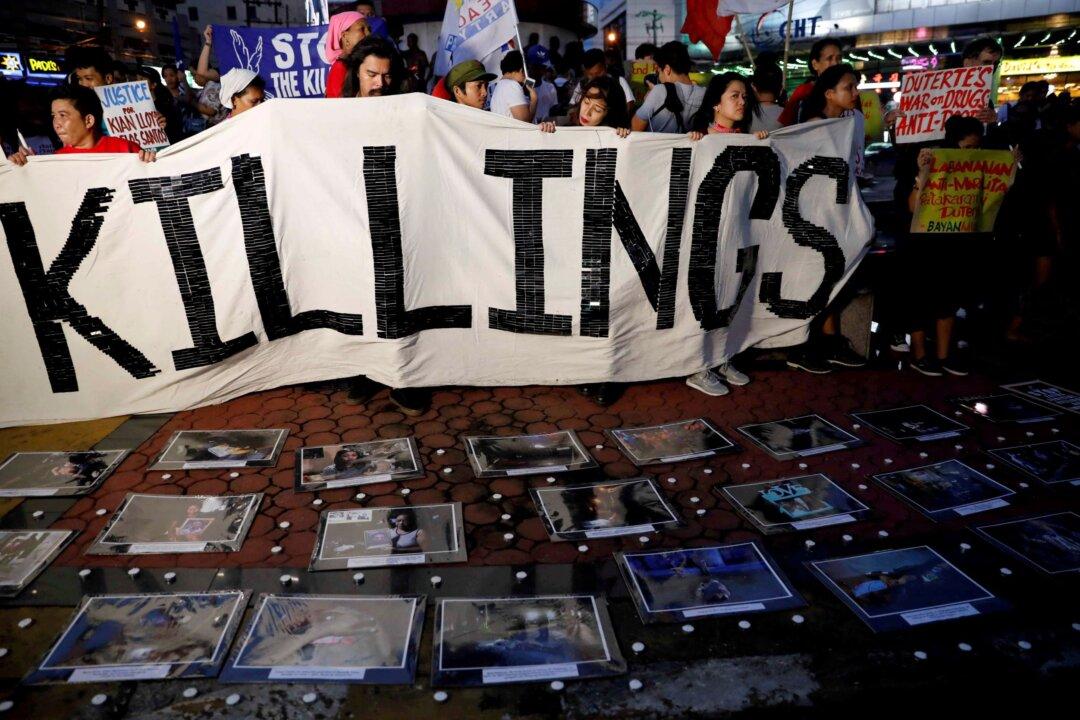The International Criminal Court (ICC) said Thursday that it had granted its prosecutor’s request to reopen a probe into the alleged killings and rights abuses committed in the Philippines’ drug war campaign.
The ICC judges concluded that the Philippine government failed to provide any evidence to support its claims that it was conducting concrete investigations or bringing charges in relation to the drug war campaign.





